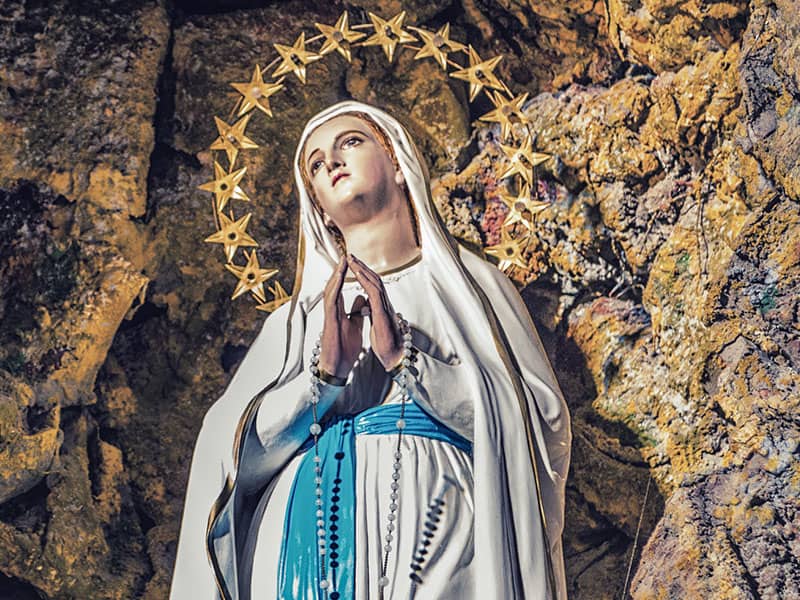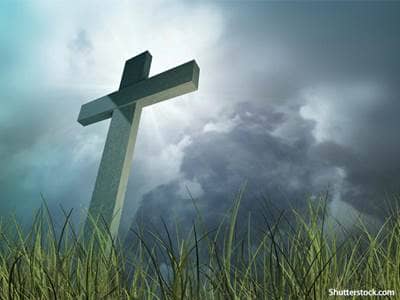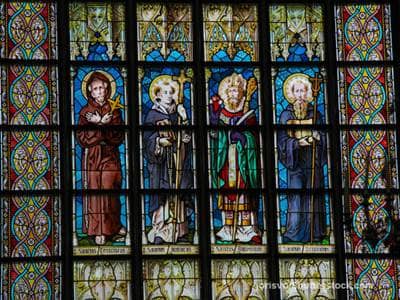Our Lady of Lourdes

On December 8, 1854, Pope Pius IX proclaimed the dogma of the Immaculate Conception in the apostolic constitution Ineffabilis Deus. A little more than three years later, on February 11, 1858, a young lady appeared to Bernadette Soubirous. This began a series of visions. During the apparition on March 25, the lady identified herself with the words: “I am the Immaculate Conception.”
Bernadette was a sickly child of poor parents. Their practice of the Catholic faith was scarcely more than lukewarm. Bernadette could pray the Our Father, the Hail Mary and the Creed. She also knew the prayer of the Miraculous Medal: “O Mary conceived without sin.”
During interrogations Bernadette gave an account of what she saw. It was “something white in the shape of a girl.” She used the word aquero, a dialect term meaning “this thing.” It was “a pretty young girl with a rosary over her arm.” Her white robe was encircled by a blue girdle. She wore a white veil. There was a yellow rose on each foot. A rosary was in her hand. Bernadette was also impressed by the fact that the lady did not use the informal form of address (tu), but the polite form (vous). The humble virgin appeared to a humble girl and treated her with dignity.
Through that humble girl, Mary revitalized and continues to revitalize the faith of millions of people. People began to flock to Lourdes from other parts of France and from all over the world. In 1862 Church authorities confirmed the authenticity of the apparitions and authorized the cult of Our Lady of Lourdes for the diocese. The Feast of Our Lady of Lourdes became worldwide in 1907.
-
St. Adrian of Canterbury (d. 710)
-
St. Maria Goretti (1890-1902)
-
St. Adalbert of Prague (956-97)
-
Blessed Emmanuel Ruiz and Companions (1804-1860)
-
St. Agnes (d. 258?)
-
Blessed Junipero Serra (1713-1784)
-
Sts. John Jones and John Wall (c. 1530-1598; 1620-1679)
-
St. John Francis Regis (1597-1640)
-
Our Lady of Mount Carmel
-
Assumption of Mary


